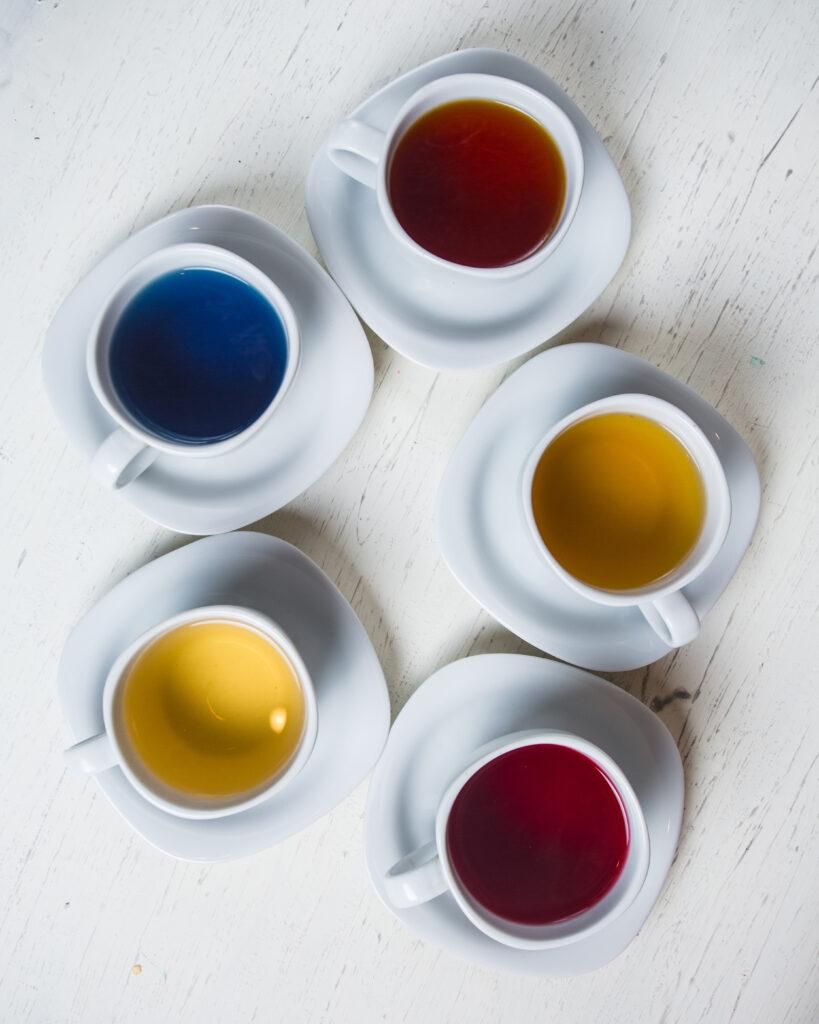Health Check: Does Your Cup of Tea Raise Your Blood Pressure?
Does Tea Raise Blood Pressure?
My mother had always been proud of her consistently low blood pressure, until a routine eye surgery revealed an alarming and unexpected spike. Her blood pressure had unknowingly skyrocketed to dangerous levels, prompting immediate medical attention. This unexpected turn of events led me to delve into various methods for blood pressure management. Tea often comes up as a potential solution, but does it truly have the ability to lower blood pressure, or does tea raise blood pressure? Is there even a straightforward answer to this question?
Today I’ll share my personal experiences and insights, supported by scientific evidence, to explore the impact of tea on blood pressure and its potential benefits for those seeking a health-conscious lifestyle.
We are a participant in the Amazon Services LLC Associates Program, an affiliate advertising program designed to provide a means for us to earn fees by linking to Amazon.com and related sites. This post may contain affiliate links which means we may receive a commission, at no cost to you, for purchases made using our links. Please see my disclosure to learn more. Unless otherwise stated, all prices are in US$.
Understanding Blood Pressure
To begin our journey, let’s clarify what blood pressure is and why it’s a vital indicator of our overall health. Blood pressure measures the force of blood against the walls of our arteries as the heart pumps it around our body.
It consists of two values: systolic pressure (the pressure when the heart beats) and diastolic pressure (the pressure when the heart rests between beats). Maintaining a healthy blood pressure level is essential for preventing cardiovascular diseases and ensuring overall well-being.

The Link Between Tea and Blood Pressure
The connection between tea and blood pressure is a subject of considerable interest. Can a simple cup of tea impact our blood pressure levels? Let’s delve deeper to find out.

Types of Tea and Their Impact
One of the fascinating aspects of tea is the variety it offers. From green tea to black tea and herbal blends, each type boasts its unique characteristics and health benefits. The impact on blood pressure may vary among these types, and we’ll explore the distinctions.
Caffeine and Blood Pressure
Caffeine is a well-known component in tea that often raises questions about its effects on blood pressure. While tea does contain caffeine, it doesn’t seem to have enough to have a meaningful impact on blood pressure.
Antioxidants and Blood Pressure
Tea is celebrated for its abundant antioxidants, such as catechins and flavonoids. These antioxidants play a pivotal role in overall health, including blood pressure regulation.
The Power of Polyphenols
Polyphenols are a group of compounds found in tea that deserve a spotlight. These mighty molecules have been associated with numerous health benefits, and their influence on blood pressure is no exception.
Managing Blood Pressure with Tea
As a health-conscious tea lover, you’re probably wondering how to make the most of your tea-drinking habit while maintaining healthy blood pressure levels. I’ll provide you with practical tips to achieve just that.
Monitoring Your Tea Intake
While tea offers numerous health benefits, moderation is key. Learn how to strike a balance in your tea consumption for optimal results.

Teas that Can Lower Blood Pressure
While the relationship between tea and blood pressure is multifaceted, some types of tea have garnered attention for their potential to assist in blood pressure management. Here are a few varieties to consider:
- Green Tea: Green tea is celebrated for its high concentration of antioxidants, specifically catechins. These compounds have shown promise in improving blood vessel function and aiding in blood pressure regulation. Regular consumption of green tea may contribute to lower blood pressure levels.
- Hibiscus Tea: Hibiscus tea, made from the vibrant hibiscus flower, has been associated with blood pressure reduction. Its natural diuretic properties can help lower blood pressure by reducing fluid volume in the bloodstream. Some studies suggest that hibiscus tea can be a beneficial addition to a hypertension-friendly diet.
- Rooibos Tea: Rooibos tea is an herbal tea known for its caffeine-free and rich antioxidant content. Some research suggests that the antioxidants in rooibos may help relax blood vessels and reduce blood pressure.

VAHDAM, Himalayan Green Tea

HANDPICK Caffeine Free Hibiscus Tea Bags

The Republic of Tea, Double Red Rooibos
Potential Risks and Precautions
It’s essential to be aware of potential risks associated with excessive tea consumption and take necessary precautions to safeguard your health.
- Caffeine Sensitivity: Some individuals are more sensitive to caffeine than others. Excessive caffeine intake from tea can lead to jitteriness, increased heart rate, and, in some cases, elevated blood pressure. If you’re caffeine-sensitive, choose lower-caffeine or caffeine-free tea options.
- Tea Additives: Be cautious about what you add to your tea. Sugar and high-fat dairy can contribute to weight gain and related health issues, which may impact blood pressure. Opt for natural sweeteners or enjoy your tea plain.
- Interactions with Medications: If you’re taking medications for blood pressure or other health conditions, consult your healthcare provider. Some compounds in tea can interact with certain medications, potentially affecting their effectiveness.
- Moderation is Key: While tea can offer health benefits, it’s important to consume it in moderation. Excessive tea consumption, like anything else, may lead to potential health issues.
- Variety is Beneficial: Rather than relying solely on one type of tea, consider diversifying your tea choices. Different teas offer various health benefits, and a balanced approach can be more advantageous.
Tea as a Part of a Balanced Diet
Tea is just one piece of the puzzle in maintaining good health. Discover how it fits into a balanced diet to achieve holistic well-being.
- Diverse Nutrition: Ensure your diet includes a variety of fruits, vegetables, lean proteins, and whole grains. Tea can be an excellent addition to a diet rich in essential nutrients.
- Hydration: Tea can be a hydrating choice, but remember to balance it with water intake. Staying properly hydrated is crucial for good health.
- Mindful Choices: Pay attention to the additives you use with your tea. Opt for natural sweeteners or herbal infusions to avoid unnecessary sugar and calories.
- Portion Control: Enjoy tea in moderate portions. Sipping slowly and savoring the experience can enhance its benefits.
- Active Lifestyle: Pair your tea-drinking routine with regular physical activity. Exercise is a fundamental element of a healthy lifestyle.

Lifestyle Factors
Besides tea, different lifestyle factors have an impact on blood pressure. Habits such as smoking, excessive alcohol consumption, and lack of exercise can undoubtedly have a negative effect on your blood pressure and overall well-being. On the flip side, embracing a balanced diet and engaging in regular physical activity can be instrumental in achieving a healthier and more vibrant lifestyle.
A Few Final Thoughts
Tea is not just a delightful beverage; it’s a versatile ally in maintaining healthy blood pressure. By understanding the nuances of tea types, caffeine content, antioxidants, and polyphenols, you can harness the potential of this remarkable drink. When consumed in moderation and as part of a balanced diet, tea can contribute to your overall well-being.
Of course, it’s important to acknowledge that tea isn’t some magical fix for everything, but it can definitely be a helpful partner in keeping our blood pressure in check!
Some Questions You Might Have
- Can drinking too much tea raise blood pressure?
While excessive tea consumption may have adverse effects, moderate intake is generally not associated with raising blood pressure.
- Which type of tea is best for blood pressure management?
Green tea is often considered a good choice due to its rich antioxidants and lower caffeine content. Hibiscus tea and Rooibos tea are also good options. But again, everything in moderation! Too much Rooibos tea could cause unwanted kidney complications.
- How many cups of tea can I safely consume in a day?
The safe limit can vary from person to person, but aiming for 3 to 4 cups a day is a reasonable guideline for most individuals.
- Are there any specific teas to avoid if I have high blood pressure?
It’s wise to limit strong caffeinated teas and avoid excessive sugar or cream in your tea if you’re concerned about your blood pressure.




